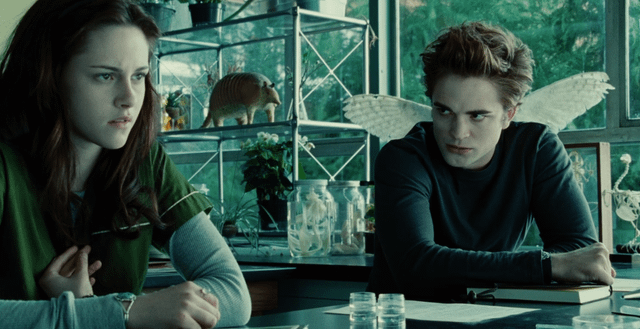
The internet, a tempestuous sea of fleeting trends and forgotten memes, can, on rare occasions, achieve a moment of collective stillness, a held breath. Such was the case when the whispers solidified into headlines: "New Twilight Spin-Off in the Works. Here's What We Know So Far." For a generation that grew up amidst the glittering pallor of vampires and the earnest declarations of werewolves, the news wasn't just another industry announcement; it was a potent, almost alchemical, return to a specific, formative epoch.
This isn't merely a business decision, a corporate effort to wring the last drops from a beloved franchise. It's an excavation of a cultural artifact, a testing of the enduring power of first loves, forbidden desires, and the eternal angst of adolescence. The illustrative essence of this news lies not just in the "what," but in the "why now," and the collective sigh of both anticipation and apprehension that followed.
What We Know (and What We Speculate with Feverish Optimism):
The concrete details are, as always with nascent projects, tantalizingly sparse but incredibly suggestive. Lionsgate Television, the studio behind the original cinematic phenomenon, is reportedly spearheading the revival, with murmurs of a deal being finalized with a major streaming platform. This immediately signifies a pivot from the theatrical blockbusters of old to the binge-worthy serial narratives that dominate today's landscape. The format shift itself is illustrative: Twilight, designed for cinema, now finds its new home in the intimate, episodic world of television, allowing for deeper character dives and more intricate world-building than its two-hour film counterparts often afforded.
Crucially, sources indicate this won't be a direct reboot of Bella and Edward's saga, nor a simple re-telling of Stephenie Meyer's original books. Instead, the buzz suggests an "expansion" of the universe. This is the golden ticket, the promise of something fresh yet familiar. Speculation runs rampant: could it delve into the ancient history of the Volturi, exploring their rise and ruthless dominion? Might it focus on lesser-known covens or packs across the globe, bringing new supernatural mythologies into the fold? Or, perhaps most compellingly for original fans, could it explore the next generation – a fully grown Renesmee, navigating her unique existence in a world where the lines between human and supernatural are increasingly blurred, and the uneasy peace brokered by her parents is constantly under threat?
Stephenie Meyer herself is rumored to be involved in an executive producer capacity, a crucial detail that offers a measure of authenticity and a promise that the spin-off will, at its core, remain true to the spirit of her creation. New showrunners and a writers' room are reportedly being assembled, tasked with the tightrope walk of honoring the source material's distinct romanticism and emotional intensity while injecting a contemporary sensibility. Will it be grittier, leaning into the horror elements? Will it explore the socio-political implications of supernatural existence in the modern age? These are the questions that keep the fandom buzzing.
The Illustrative Power of Nostalgia and Evolution:
The news of a Twilight spin-off is illustrative of several powerful cultural phenomena. Firstly, the enduring power of nostalgia. For many, Twilight was synonymous with their early teen years – the first crush, the first understanding of angst and obsession, the first foray into complex fantastical worlds. It was a shared language, an identity marker. The return isn't just a new show; it's a chance to revisit a piece of oneself, to see how that familiar story might evolve with a more mature lens, or to introduce it to a new generation, perhaps with a more nuanced perspective on its controversial themes.
Secondly, it speaks to the cyclical nature of popular culture and the hunger for expanded universes. In an era dominated by cinematic universes and interconnected narratives, Twilight's sprawling mythology is ripe for exploration. The original books and films only scratched the surface of a world teeming with ancient vampires, diverse werewolf packs, and a vast, intricate history. A series format allows for the slow burn, the meticulous world-building, and the character development that the saga deserves.
Finally, it illustrates the fragile balance between fan service and creative innovation. The spin-off exists on a precipice. On one side lies the danger of becoming a mere cash grab, a hollow echo of what came before, failing to capture the magic that resonated with millions. On the other lies the potential for a glorious rebirth, a chance to deepen the lore, address past criticisms, and tell new stories that are both true to the original spirit and boldly original. The success of this new venture will depend on its ability to both acknowledge its roots and bravely branch out, proving that the twilight of one story can indeed usher in the dawn of another.
As the details continue to trickle in, the collective gaze of a generation remains fixed, a blend of breathless hope and cautious optimism. The news of a new Twilight spin-off isn't just a headline; it's an illustrative snapshot of our cultural landscape – one where the past forever informs the present, where beloved stories refuse to die, and where, just possibly, the supernatural whispers of Forks, Washington, are ready to enchant us all over again.
